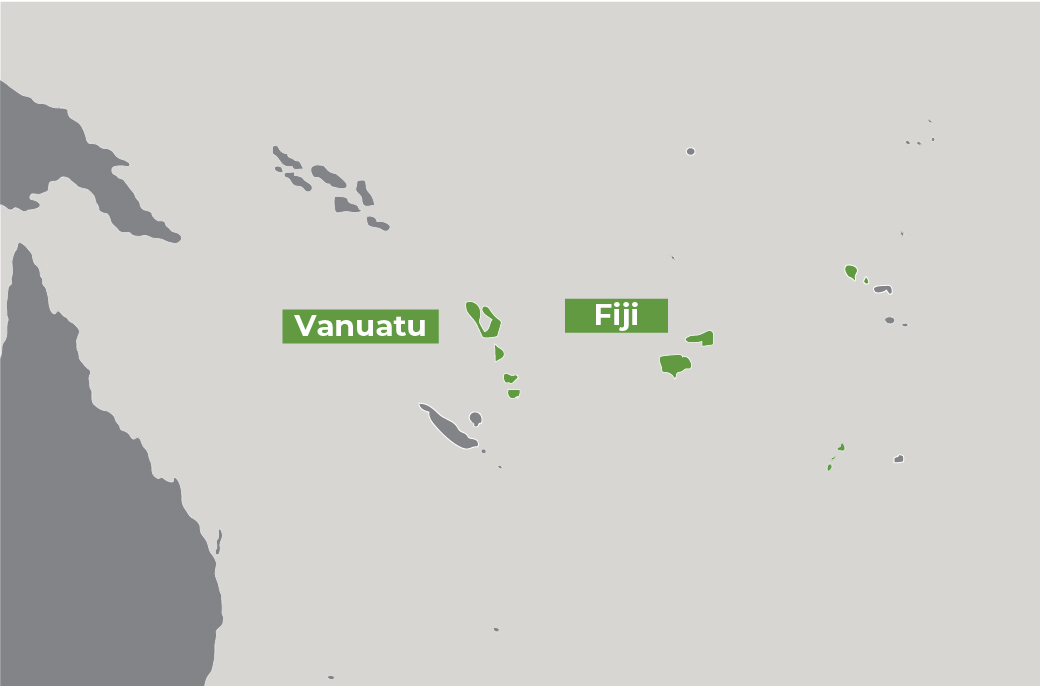Overview
This project aims to support water security in western Pacific Island communities forced to relocate to higher locations due to climate-driven coastal impacts.
This project specifically focuses on supporting future water security needs for the growing numbers of locally relocated coastal communities that will appear in the high-island nations of the western Pacific (Fiji, Solomon Islands, Vanuatu) over the next 10-20 years. The probable timeframe of mass relocation of coastal settlements in the high islands of the western Pacific over the next 10-20 years, in particular, may take planners and policymakers by surprise, exposing the lack of current research focus on the everyday practicalities of localised relocation, especially meeting locally relocated coastal communities' water needs. However, as sea level continues rising over the next 10-20 years (and beyond) and more (rural, subsistence-oriented) high-island coastal communities are forced to relocate upslope/inland, the importance of sustainable systems of water and food security to ensure the viability of locally relocated coastal communities will grow.
While some attention has focused on the 'where' to relocate, little research has been conducted on the 'how' to sustain such locally relocated coastal communities, especially regarding their access to water, which is central to livelihood sustainability. All this is often framed within a context of scepticism about the 'need' to relocate, especially when framed in purely secular (scientific) language. This has led to a high degree of sensitivity about even broaching the topic of relocation with island/community leaders.
For this project, water security is conceptualised as accessible, equitable and affordable access to water of a suitable quality to support livelihood activities, which, at a minimum, include subsistence agriculture. Equitable water access in locally relocated coastal communities is a key focus of this project for many rural Pacific Island communities maintain traditional gender roles, commonly dominated by patriarchal hierarchies of decision-making that sometimes translate into inequitable participation of females and younger people.
Activities and expected project outcomes
- Identifying optimal water access and management strategies for future locally relocated coastal communities.
- Analysing existing water usage and community perspectives for climate change adaptation.
- Evaluating the progress of vulnerable coastal communities towards relocation, emphasising water systems in 2 coastal sites in Fiji and Vanuatu.
- Empowering community leaders to develop and implement responses tailored to their needs.
- Enhancing the capacity of community decision-makers to plan for sustainable water management in relocated coastal communities.
- Facilitating discussions with senior decision-makers to improve water security and relocation policies.
- Providing an evidence base (focused on water) for developing policy for the Governments of Fiji and Vanuatu and their donor partners to support effective and sustainable upslope/inland relocation of vulnerable coastal communities.
- Seeking to identify effective and sustainable ways to ensure water security in similar rural coastal communities in the region.





